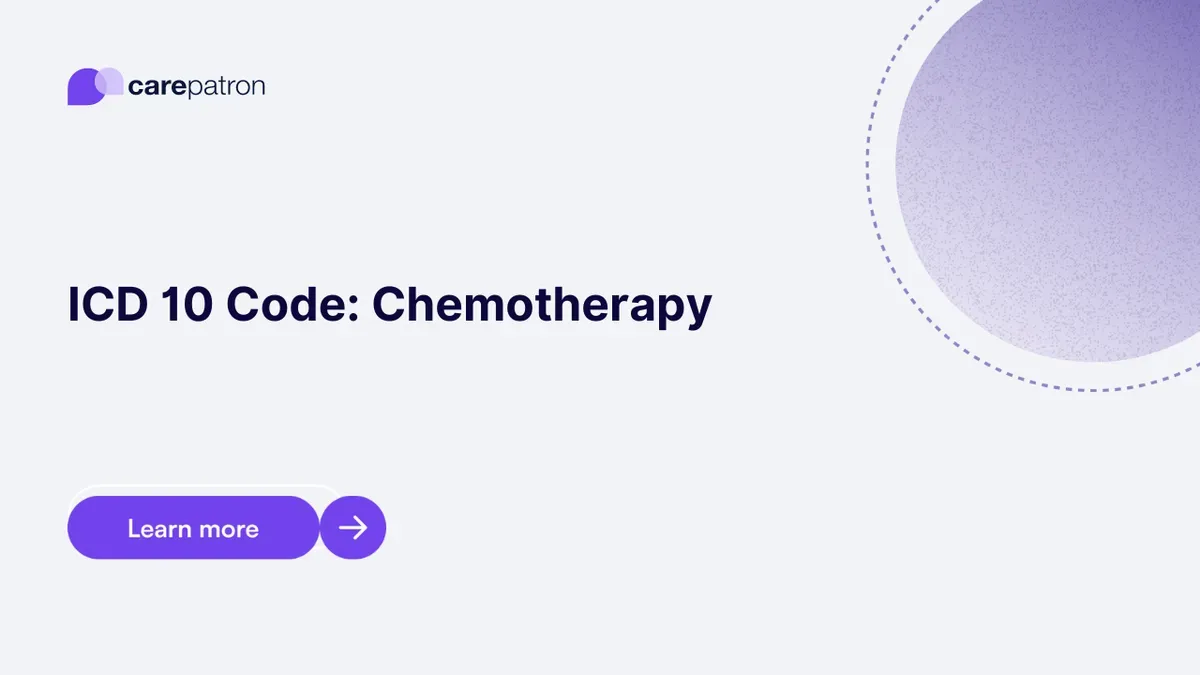
Chemotherapy ICD-10-CM Codes | 2023
Explore essential ICD-10 codes for chemotherapy treatments. Ensure accurate billing and coding for effective cancer care.
Use Code
Commonly asked questions
Use a Chemotherapy ICD code when documenting a patient's diagnosis involving malignant neoplasms and chemotherapy treatment.
Yes, Chemotherapy diagnoses are typically billable when they meet the criteria for medical necessity and are by payer guidelines.
Common treatments for Chemotherapy Diagnosis Codes include administration of chemotherapy drugs, supportive care, and regular monitoring of the patient's response.
EHR and practice management software
Get started for free
*No credit card required
Free
$0/usd
Unlimited clients
Telehealth
1GB of storage
Client portal text
Automated billing and online payments
